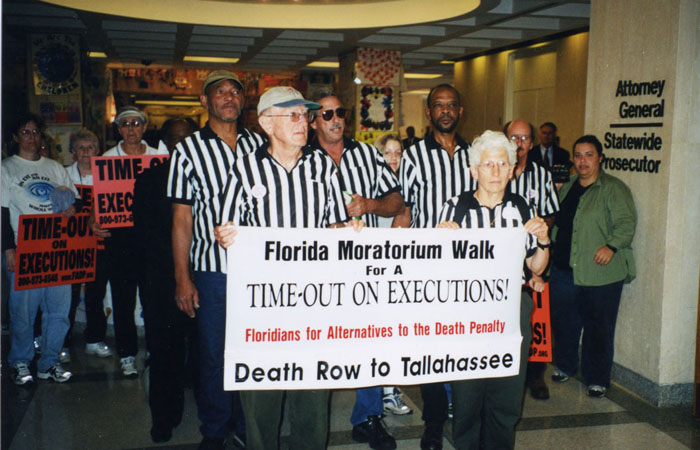Collections : [National Death Penalty Archive]
National Death Penalty Archive
Researchers, writers, activists, and records on capital punishment in the United States.
Search Constraints
Start Over You searched for: Online Content Online Content Remove constraint Online Content: Online Content Collecting Area National Death Penalty Archive Remove constraint Collecting Area: National Death Penalty ArchiveSearch Results
Alvin Ford Papers, 1965-1995 5.4 cubic ft.
Bill Pelke Papers, 1965-2007, Undated 18.32 cubic feet
Capital Defender Office Records, 1975-2007, bulk 1995-2007 116.73 cubic ft.
Card File Index of Executions, Undated 2.8 cubic ft.
Watt Espy kept a series of index cards, grouped mainly by state, that records information about executions on American soil (colonies, states, territories) since the 1600s. Some cards contain lots of information, including name, place of execution, method, and details of the crime. Other cards have very little information aside from the fact that someone was executed. Sometimes there is not even a name—just "two slaves" or "pirate". There are additional categories for federal, military, and indigenous executions. There are two different card sizes; for the 3x5 inch cards, each state, territory, or other main division is identified with a manila tab. Subdivisions are marked with blue, unlined cards and are intended to mirror the arrangement of materials in Series #2 as closely as possible.
Case Files, 1947-2012, Undated 19 cubic ft.
This series contains a file for every execution or sentence of death given to a woman or a juvenile that was known to Victor L. Streib. Some of the case study files are simply photocopies of Watt Espy's research cards, especially in cases where Espy's research is the sum total information available that particular execution. Many of these cards are from before 1976, when the death penalty was re-instated in America. Due to improved record-keeping in the modern era, case files from recent years, especially ones that Streib advised in some capacity, may contain significantly more information than others. Information pertinent to these cases vary greatly by individual depending on the state, the era, as well as media coverage of the case. The research collection is up-to-date as of 2012, so any executions, pardons, or reversals that went forward since that date will remain in the series they were in at the time these papers were acquired by the archives.
Case Files, 1988-2006, Undated 12.55 cubic ft.
The NCADP collection is comprised mainly of case files. Files include newspaper clippings, publicity materials, and correspondence between the NCADP, inmates, lawyers, and family and friends. Some artwork, court transcripts, and death warrants are also present. Each folder represents a death penalty case that the organization was interested in or involved with.
